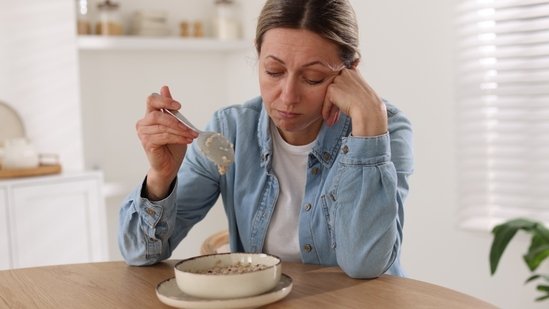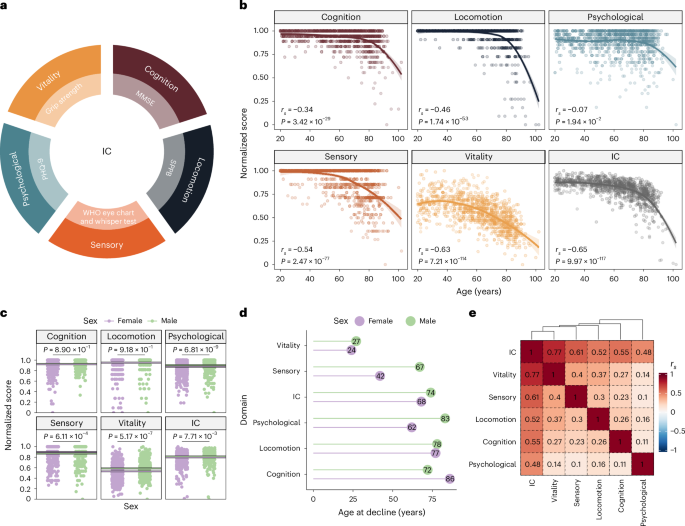|
Text to speech audio articles made possible by CAST11 Talking Glass Media |
Happiness isn’t just a fleeting emotion—it’s a state of well-being deeply connected to physical and mental health. Research shows that small, consistent lifestyle changes can have a profound impact on mood, stress levels, and overall mental resilience. According to the World Health Organization (WHO), depression is the leading cause of disability worldwide, affecting over 280 million people (WHO, 2023). Yet, studies indicate that even minor lifestyle adjustments – such as practicing gratitude, regular movement, and fostering social connections- can significantly enhance mental health and overall happiness. Whether seeking to reduce stress, improve emotional well-being, or boost energy levels, incorporating simple, science-backed strategies into daily routines can make a substantial difference.

1. Prioritize Daily Movement
Exercise isn’t just for physical fitness—it’s a powerful mood booster. Engaging in regular physical activity releases endorphins, serotonin, and dopamine, which help reduce stress and promote feelings of happiness. A 2023 study in JAMA Psychiatry found that individuals who engaged in moderate physical activity for just 30 minutes a day experienced a 26% lower risk of depression (Schuch et al., 2023). Whether walking along the Peavine Trail, attending a yoga session at a local studio, or strength training at the gym, incorporating movement into daily routines can significantly improve mental well-being.
2. Practice Gratitude and Positive Thinking
Shifting focus toward gratitude and positivity rewires the brain to enhance happiness. Research published in the Journal of Personality and Social Psychology found that individuals who practiced daily gratitude journaling for 21 days experienced a 10% increase in overall happiness and a 35% reduction in depressive symptoms (Emmons & McCullough, 2003). Reflecting on three positive things each day or keeping a gratitude journal has been shown to lower stress levels, strengthen relationships, and improve emotional resilience.
3. Nourish Your Body with Mood-Boosting Foods
What you eat directly affects how you feel. A diet rich in omega-3 fatty acids, whole grains, lean proteins, and antioxidant-packed fruits and vegetables helps regulate mood and cognitive function. In a 2020 study in the American Journal of Clinical Nutrition, individuals who consumed a Mediterranean-style diet experienced a 33% reduction in symptoms of depression compared to those on a standard diet (Jacka et al., 2020). Foods like salmon, walnuts, leafy greens, and berries support brain health by reducing inflammation linked to anxiety and depression. Learn more about the Mediterranean diet and its benefits.
4. Build Meaningful Social Connections
Strong social relationships are one of the most significant contributors to long-term happiness. A Harvard study on adult development spanning over 80 years found that individuals with strong social bonds were not only happier but also physically healthier and lived longer (Waldinger & Schulz, 2015). Regularly engaging in conversations with loved ones, joining community groups, or participating in local events fosters a sense of belonging and emotional support.
5. Create a Relaxing Routine and Prioritize Sleep
Sleep plays a critical role in regulating mood, stress hormones, and mental clarity. According to the National Sleep Foundation, adults who sleep fewer than six hours per night are 2.5 times more likely to experience symptoms of depression and anxiety compared to those who get sufficient rest (National Sleep Foundation, 2020). Establishing a consistent bedtime routine, limiting screen time before bed, and practicing relaxation techniques like meditation or deep breathing can enhance sleep quality.
Happiness isn’t about making drastic life changes—it’s about adopting small, intentional habits that promote well-being over time. Prioritizing movement, gratitude, nutrition, relationships, and rest can significantly enhance mental and emotional health. With a clear link between lifestyle choice and mental wellness, it’s evident that simple changes can create a lasting impact. For those in Prescott Valley seeking personalized mental wellness strategies, consulting with a medical expert can help develop a tailored plan for achieving long-term happiness and improved mental health.
References:
- World Health Organization (WHO). (2023). Depression: Key Facts. Retrieved from who.int
- Schuch, F. B., et al. (2023). “Exercise and incident depression: A meta-analysis of prospective cohort studies.” JAMA Psychiatry, 80(1), 32-40.
- Emmons, R. A., & McCullough, M. E. (2003). “Counting blessings versus burdens: An experimental investigation of gratitude and subjective well-being in daily life.” Journal of Personality and Social Psychology, 84(2), 377-389.
- Jacka, F. N., et al. (2020). “A randomised controlled trial of dietary improvement for adults with major depression (the ‘SMILES’ trial).” American Journal of Clinical Nutrition, 111(2), 529-537.
- Waldinger, R. J., & Schulz, M. S. (2015). “The Harvard Study of Adult Development: Lessons from an 80-year study of happiness.” Harvard Medical School, 1-8.
- National Sleep Foundation. (2020). Sleep deprivation and depression. Retrieved from sleepfoundation.org








